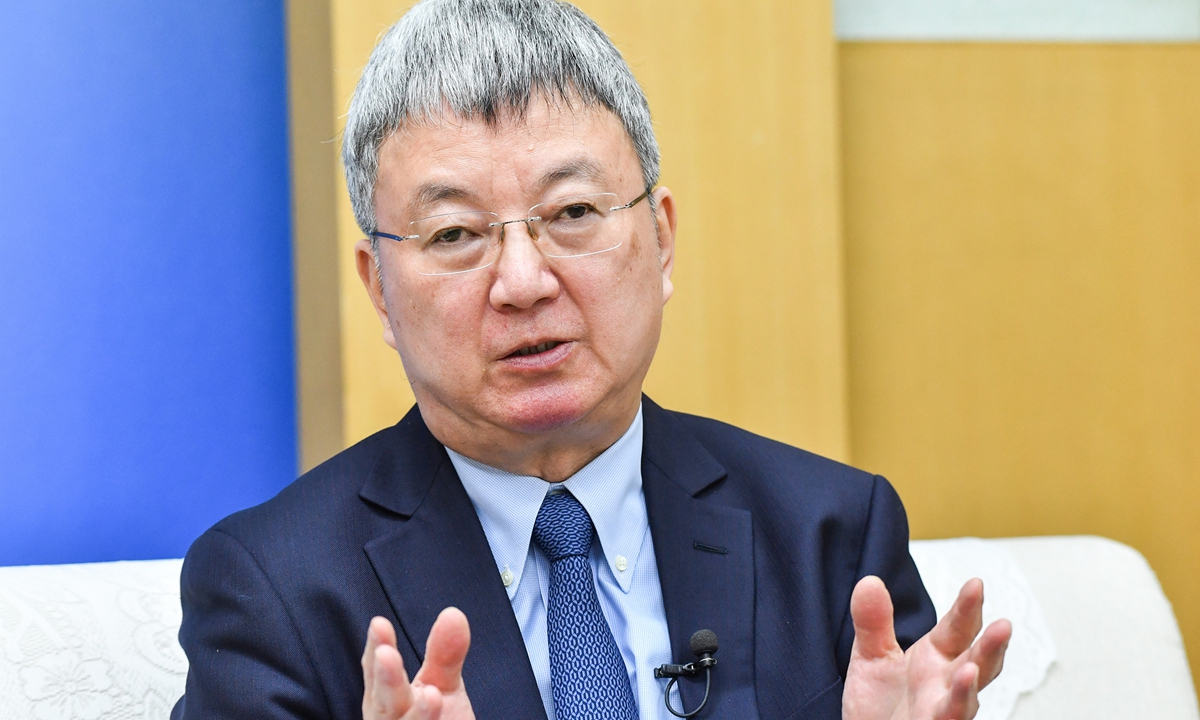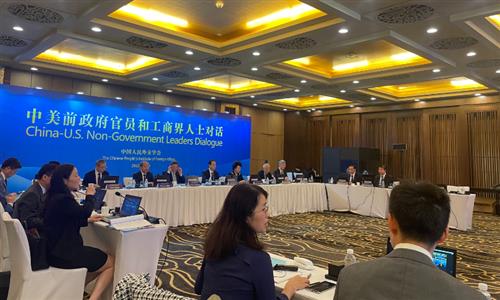Withdraw '301 investigation,' remove additional tariffs, review trade deal to be discussed if Yellen visits: former Chinese official

Photo: CFP
There is a window of opportunity in China-US relations after US Secretary of State Blinken's visit to China. If US Treasury Secretary Janet Yellen also visits China in the near future, then the key issues for both sides to discuss would be the cancellation of the US' additional tariffs on China, the withdrawal of its "301 investigation" against China, and the review of the first phase of the China-US trade agreement, Zhu Min, former deputy governor of the People's Bank of China and former deputy managing director of the IMF, told the Global Times late Thursday.
"China-US relations are at a low point, and the US' posture of wantonly smearing and suppressing China is still very strong, but there are various windows of opportunity in this process, such as the recent one," Zhu told the Global Times on the sidelines of the second China-US Non-Government Leaders Dialogue.
The meeting between the heads of state of China and the US in Bali last year had a very good effect, but it was later disturbed by the "balloon incident." Blinken's recent visit to China has played a positive role, and the two sides have reached some consensus on strengthening communication and exchanges, Zhu said. "In the next stage, Yellen and other US officials may also visit China, so there is still a chance for both sides to promote the positive development of China-US relations."
Yellen is reportedly planning a trip to China in early July and has said she hopes to reestablish contact with Beijing in a recent interview with US media.
Zhu believes trade is the cornerstone of China-US economic relations, with the cancellation of additional tariffs on Chinese goods exported to the US being the first issue that needs to be discussed between the two sides.
"Biden had once promised to cancel the additional tariffs on China, but this has not been realized, which is a blemish," said Zhu. Currently, the tariff on Chinese imports of US goods is 7.1 percent while the tariff on exports to the US is 19.2 percent, which is unequal. In addition, the high tariffs are borne by American businesses and people, which also impact US inflation.
Three years have passed since the signing of the phase one trade agreement between China and the US, and bilateral trade continues to grow and both parties need to review this agreement to identify what can continue to be implemented and what is not suitable for continued implementation. However, the premise is to withdraw the "301 investigation," he said. In addition, the US should also cancel unreasonable sanctions on Chinese companies, Zhu noted.
Zhu also revealed that he specifically raised the issue of green trade and related industrial policies at the dialogue on Thursday with his US counterparts. He believes that the Inflation Reduction Act passed by the US in 2022 is essentially an industrial policy aimed at China's photovoltaic industry, which has raised new issues internationally.
The first of the dialogues was held in New York in November 2022, with the group of former US officials and executives led by Maurice Greenberg, former chairman and CEO of insurer American International Group.
During the dialogue on Thursday, representatives from China and the US also discussed the issue of generalizing the concept of national security. Some US representatives mentioned that if everything is about national security, then there is no national security.
In fact, in fields such as energy, healthcare, and public health, there is a lot of room for cooperation between China and the US, but generalizing the concept of national security blocks potential cooperation, Zhu noted.
He also believes that the new "Washington consensus" announced by US National Security Advisor Jake Sullivan is a new framework based on national security. If the US bases its policies on this, it will make the whole world increasingly divided.
In terms of Washington's "de-risking" narrative, Zhu said the US came up with "de-risking" because it has realized that "decoupling" from China is hard to achieve.
"But 'de-risking' is a vague and dangerous concept, and its biggest problem is that it is unable to clarify where the boundaries are," Zhu said, noting that "de-risking" means reducing dependency, which will eventually turn into "anti-globalization."


